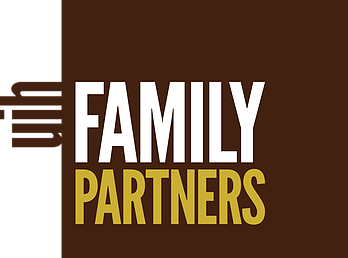A Website Model for Your Fatherhood Work
2 min read
Date Published: 12/20/2016
Last Updated: 10/15/2021
National Fatherhood Initiative Blog / Latest Articles
2 min read
Next to word-of-mouth and your program and organization partners, your website can be your best communication and recruitment channel for your fatherhood program. Your website can also be an important way to show funders your work with dads. (Funders often review websites to find organizations to fund and when reviewing proposals.)
Unfortunately, many direct-service providers do a poor job designing their websites (or portions of their websites) to communicate in a clear and compelling way the importance of dads and how they serve dads.
 Not so with UIH Family Partners (Trento, NJ), an organization dedicated to serving dads that uses the 24/7 Dad® program. Their website is the best I've seen from a direct-service provider that shows in a clear and compelling way the importance of dads and how an organization serves them.
Not so with UIH Family Partners (Trento, NJ), an organization dedicated to serving dads that uses the 24/7 Dad® program. Their website is the best I've seen from a direct-service provider that shows in a clear and compelling way the importance of dads and how an organization serves them.
Although there might be a better website on which to model your own, you could do a lot worse than using theirs, regardless of whether your primary focus is serving dads or only one focus of several. Some of the design elements that stand out are:
When you look at your website, what do you see? If it could use an upgrade that requires expertise your organization lacks, consider partnering with your local college or university's career department where students are looking to flex their newly-acquired design skills and are willing to work pro-bono to build their portfolio. There are also many website templates available at a low cost that make creating a website simple. Even a person without web design experience can create and edit web pages with ease. Websites such as wix.com and squarespace.com offer such templates.
If you haven't put enough effort into designing a clear and compelling website, get moving on designing one. If you don't, you're wasting an important tool in your service to dads.
Is your website simple and easy to navigate?
Do you use a balance of visual and written content to "show and tell" about your organization and its work with dads?
How much effort have you put into designing your website to show the importance of dads and how your organization serves them? Do fatherhood offerings get as much billing as programs for moms and kids?
Are you a dad looking for help? Please visit our Fatherhood Program Locator™ and enter your city and state on the map to find programs and resources in your community.
Date Published: 12/20/2016
Last Updated: 10/15/2021
Download this free guide for a proven 7-step roadmap—from making the case and securing funding for your program, to launching and measuring real results!


Train Your Staff
Fatherhood Programs
Fatherhood Data
© 2026 National Fatherhood Initiative®. All rights reserved.